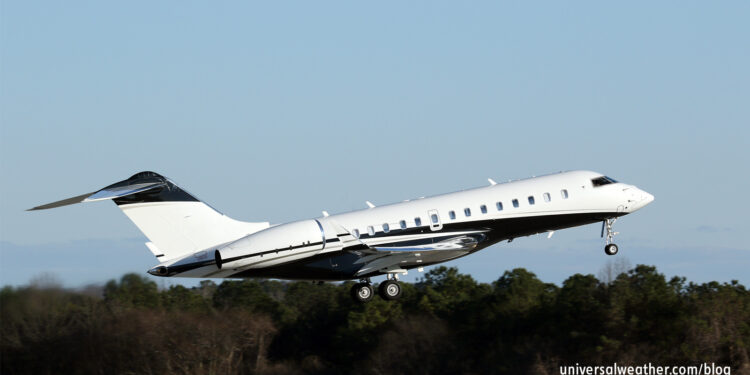Business Aircraft Ops to the Azores: Part 2 of 2 – Permits, PPRs, Slots, and CIQ

This article continues from our article last week, titled “Business Aircraft Ops to the Azores: Part 1 of 2 – Airports and Services.”
When planning business aircraft operations to the Azores, an autonomous region of Portugal, always ensure that proper lead times are provided for prior permissions required (PPRs), landing and overflight permits, and services requested. You should also be aware of the customs, immigration, and quarantine (CIQ) clearance process.
The following is an overview of what you need to know:
1. Landing permits and requirements for the Azores
Landing permits are required for any domestic legs within the Azores for private non-revenue or charter (non-scheduled commercial) flights. Aircraft operating on experimental certificates must always have landing permits. Charter (non-scheduled commercial) flights do not require landing permits for tech stops at airports of entry (AOEs), so long as no passengers/crew embark/disembark. Be mindful that charter operations must always have landing permits for any non-tech stop operation in the Azores.
2. Landing permit processing
The Civil Aviation Authority (CAA) of Portugal processes landing permit requests with a lead time of four business days. Permits are valid for the Zulu date. Any changes to schedule, origin, destination, or Zulu date require permit re-approval. Required documentation includes certificates of airworthiness and registration, worldwide insurance, noise certificate, radio station license, air operating certificate (AOC) for charter, and proof of RVSM and TCAS II certification. Documentation must be forwarded along with your landing permit request, or CAA will not process the request. Note that CAA operates Monday – Friday 0930-1230 and 1400-1700 local and is closed on weekends/holidays. Short notice permit requests may be considered at CAA’s discretion. Official landing permit lead times are as follows:
- Domestic airport – four business days
- Military airport – two weeks
- Air ambulance – four business days
- Charter permit – four business days
3. Overflight permits for the Azores
Overflight permits are needed for all aircraft registered on experimental certificates and for aircraft registered to non-ICAO states. Normal lead time for these requests is four business days.
4. Noise restrictions
Be mindful that operation of a Stage II aircraft is not permitted at any airport in Portugal, including the Azores.
5. CIQ and visa considerations
If this is your first port of entry to the European Union (EU), or your last point of departure from the EU, CIQ clearance will be necessary – even for tech stops. Note that customs authorities in the Azores are very thorough. Depending upon where you’ve come in from, or where you’re headed, your aircraft may be searched by customs sniffer dogs. These searches are at the discretion of local customs without notice and have potential to cause delays on the ground at your Azores stop. CIQ clearance typically takes 30-60 minutes for destination stops. If you’re on a tech stop, CIQ procedures are usually much quicker – often just a passport check. CIQ is usually cleared within the main terminal, and VIP passenger clearance may be requested for AOEs in the Azores. It’s recommended that all passenger/crew information is sent in advance to help avoid CIQ clearance delays. Schengen visas, if required, must be obtained prior to arrival.
6. Tech stops
The Azores – particularly LPAZ – is a very popular and efficient tech stop when traveling between North America and Africa. If no passengers or crew are embarking/disembarking tech stops can often be accomplished within 30 minutes.
7. Alternate and ETP considerations
Due to local operational requirements, only Ponta Delgada (LPPD) and Santa Maria (LPAZ) may be used as alternates. Lajes (LPLA) has a prior permission required (PPR) requirement with a two weeks’ notice; therefore, it is not a practical alternate. Always check airport hours when using any airport in the Azores, for either an alternate or equal time point (ETP), to ensure the airport will be open during the time your flight will be in the area.
8. Airport slot requirements for LPPD
Airport slots for LPPD are requested via the airport authority, and your ground handler can assist with this. Note that no slot confirmation numbers are provided, and nothing needs to be entered in Remarks 18 section of your flight plan.
9. PPR requirements for LPLA
Military authorities at LPLA will review, process, and approve or disapprove all PPR requests. Minimum lead time for a LPLA PPR request is 72 working hours, and no deviation from this lead time is accepted. With your PPR request it’s important to provide aircraft, operator, crew and passenger information, as well as a full schedule (with the estimated time of arrival and departure). PPR confirmations are provided by the airport authority and must be placed in the remarks section of your ICAO flight plan.
2/1/2017: Updated by reader
Conclusion
When traveling through the Azores it’s important to consider when landing and overflight permits are needed. It’s also important to note the customs and immigration clearance process, along with any needed PPRs or airport slots for your trip.
Questions?
If you have any questions about this article or would like assistance planning your next trip to the Azores, contact me at randihudson@univ-wea.com.




